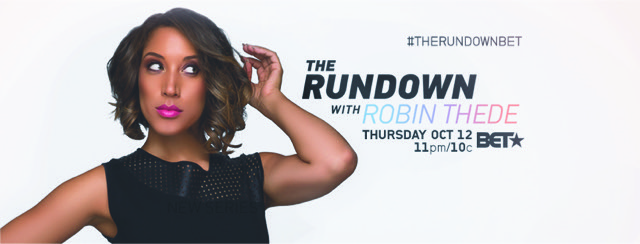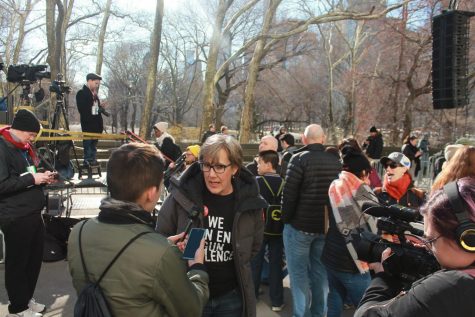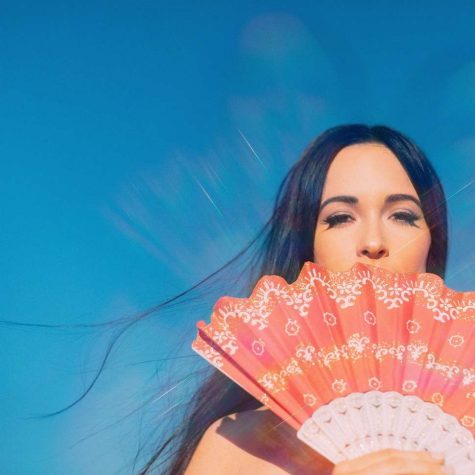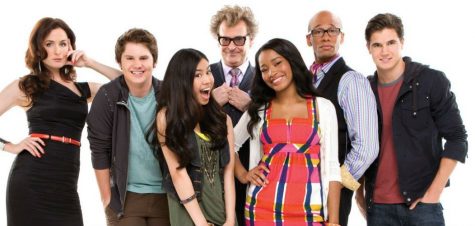Late Night Needs More Diversity
Why does it take a streaming services to create late night shows not necessarily watched at night to consider women as potential hosts for? Why is Andy Cohen the lone LGBT on late night?
Jimmy Fallon said about his job as a late night host, “Politics is pop. Our job as comedians – especially me, as a late-night talk show, which is a broader audience – is to amplify what we think America is thinking.”
Fallon is right to believe a job of late night is to give voice to what Americans are thinking. However, for many years, late night television has not given voice to what ALL OF AMERICA is thinking.
The history of late night TV is no advertisement for the entire spectrum of America. The view is bleaker when looking at broadcast networks. In the entire history of network late night shows only two women have ever hosted a show. The woman to break the glass ceiling was Joan Rivers who hosted The Late Show with Joan Rivers for one season on the then newly airing Fox. 
For the rest of her life, Joan Rivers only witnessed one other woman host another network late-night talk show. Wanda Sykes would briefly host a late night show on Fox in 2009. In fact, when Kathy Griffin was asked on Larry King Now about the possibility of a woman hosting a network late night talk show amid the host upheaval of 2014 she ended any hopeful chance.
The track record for networks does not get any better for men or women of color. Arsenio Hall and Whoopi Goldberg both briefly hosted shows, but in syndication not network.
As I look further and further at history I fear if anything will ever change to make late night television truly amplify what America is thinking. However, I have hope in recent weeks and especially this past week.
I attended Pitch NY, a workshop and conference on development and pitching. I know it can sound boring, but as a media nerd and gay person of color it meant everything.
The event was specifically meant to give access and visibility to New York college students studying media who were from marginalized communities.
As I listened, talked, and laughed with people like me who wanted their stories and perspectives heard on the same footing as any middle-aged white guy.
Every person, I met gave me reinvigorated hope that the industry is changing, even if, the progress is tiringly slow to come. The talent and creators are ready for the spotlight, however, is the television landscape ready to give the spotlight?
I believe cable and streaming services are giving signals they are. The night of October 12, 2017 was great for progress in representation as two women, one of them a woman of color, joined the late night TV club.
Welcome to mid evening satire, @Robinthede and @SarahKSilverman! @Chelseahandler and I have been waiting for you. pic.twitter.com/stZnkjtJ3q
— Samantha Bee (@realsambee) October 12, 2017
The Rundown with Robin Thede is premiering on BET, alongside, Sarah’s Silverman’s I Love You, America on Hulu.
Their premieres could not have come at a better time than in the wake of the Harvey Weinstein scandal.
The Harvey Weinstein scandal and the disgusting revelations of Weinstein’s years of predation have shaken a country who watched countless movies of his, but more pointedly the entertainment industry. As my fellow Pitch NY attendees and I broke for lunch we watched news coverage of the scandal play on the TV in the corner.
The scandal has made me concerned for the pervasive awareness of Weinstein’s predation in the entertainment industry and hope there will be greater speaking out about the issue.
Among, the late night hosts speaking out has been slow, but what has been said is good sign of grasping how serious the state of sexual harassment is beyond Harvey Weinstein.
While Jimmy Kimmel, Seth Meyers, Steven Colbert, and their fellow hosts all said what as expected and appropriate, it was Full Frontal host’s Samantha Bee’s response that displayed clearly why points of view outside of white straight men are needed in late night and television at-large.
Samantha Bee’s monologue about the pervasiveness of sexual harassment most poignant when she said she did not need to play the recording of Harvey Weinstein harassing a young model because, “well ladies we’ve heard it all before…”
Bee displaying a clear example of why diversity is needed in late night because she spoke from a point of view Meyers, Colbert, Kimmel, and others cannot. Bee knows she can provide a point of view they cannot, but makes iron-clad certain that it never defines her, as it should not.
The same can be said of Thede recognizing she can offer a different voice in late night, but it does not define her. When asked by the New York Times how the show will be aimed at black viewers she said, “I’m speaking to stories that matter to us.” Yet, she followed up by saying it’s no different from her white male counterparts who are speaking about stories that matter to them.
Thede is correct in setting the record straight that her show will discuss topics and stories she believes matter to black audiences, but it is not only for black audiences.
There is a sad assumption, among some, women, people of color, and LGBT people cannot speak and connect with all of America, which is used as a reason why not to choose them as hosts for late night shows First, YES THEY CAN CONNECT WITH ALL OF AMERICA.
Second, this assumption is completed destroyed looking at the shows hosted by Samantha Bee and Andy Cohen. Samantha Bee’s show is a hit for TBS and clips on YouTube rack up hundreds of thousands of views on YouTube. Andy Cohen, currently the only gay person to host a late night show, is lighting up television and social media all week with Watch What Happens Live. It is so popular it is nearly impossible to get an audience ticket unless you know someone.
 Sarah Silverman’s and Robin Thede’s shows are a much welcomed addition to the late night landscape and welcome company with Samantha Bee and Chelsea Handler in creating a larger female voice. Yet, this is not enough.
Sarah Silverman’s and Robin Thede’s shows are a much welcomed addition to the late night landscape and welcome company with Samantha Bee and Chelsea Handler in creating a larger female voice. Yet, this is not enough.
Why is Thede the only person of color in late night? Why does it take a streaming services to create late night shows not necessarily watched at night to consider women as potential hosts for? Why is Andy Cohen the lone LGBT voice on late night? Why can’t a woman be trusted to host a show for more than one night a week?
Craig Robinson, Executive Vice President & Chief Diversity Officer for NBCUniversal, spoke at Pitch NY about how he attributes the millions of dollars in ticket sales for Girls Trip to the fact it was a recurring movie premise of an ensemble comedy, but told from a black female perspective.
The 2nd Annual PitchNY event brings diverse voices into the spotlight while cultivating New York's homegrown talent. https://t.co/BgzpeA2FfN pic.twitter.com/cZBfBhSLhm
— NY Film Office (@NYSFILM) October 11, 2017
There are millions of similar stories, but the way it is told and by who is what makes each story unique. It is the full range of unique stories that America seeks, as evidenced, by the success of Chelsea Handler’s, Samantha Bee’s, and Andy Cohen’s shows.
Let’s move further to giving all ways for a story to be told equal space to be heard. America is a diverse country with an audience seeking content and jokes with a point of view or direction that is different than what they seen before for years.
There is a wealth of voices, talent, and ideas waiting to be given a shot. I saw it firsthand at Pitch NY this past week and know it exists all over the country. Our stories and points of view should be treated like everyone else’s.
Progress is slow, but it does not wait forever. Right now, is a good time to start making bigger leaps and late night TV is a good time to start making bigger leaps and late night TV is a good place to start.
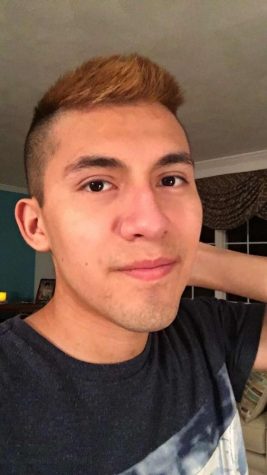
Matt Reich is a guy constantly on the go who can't let a minute go unused. Born in a city in Texas, raised in rural Connecticut, and now he's trying to...



